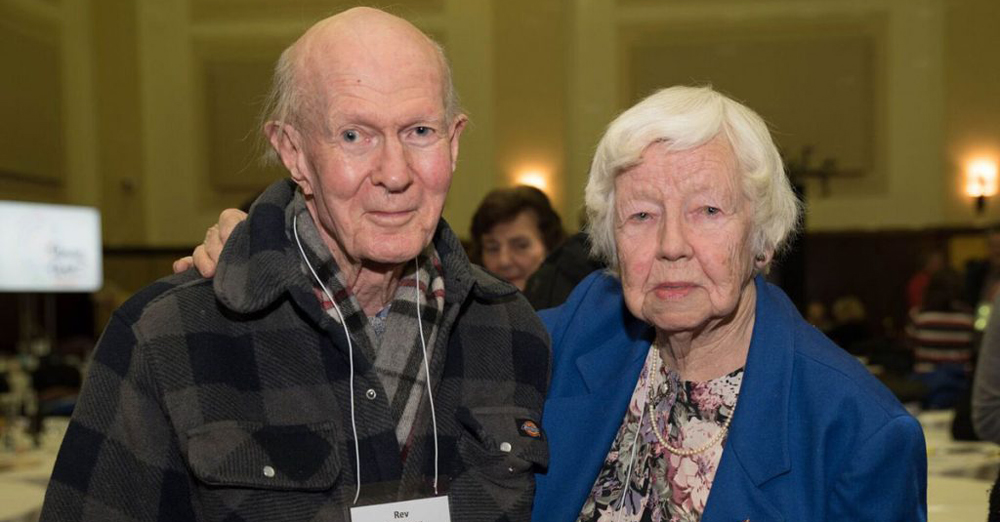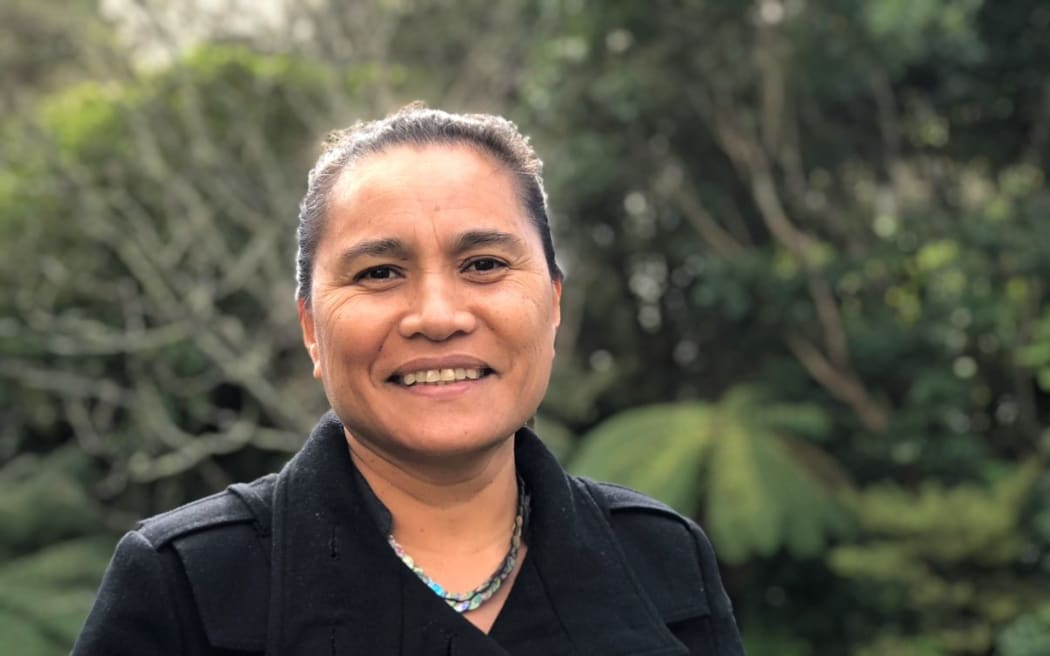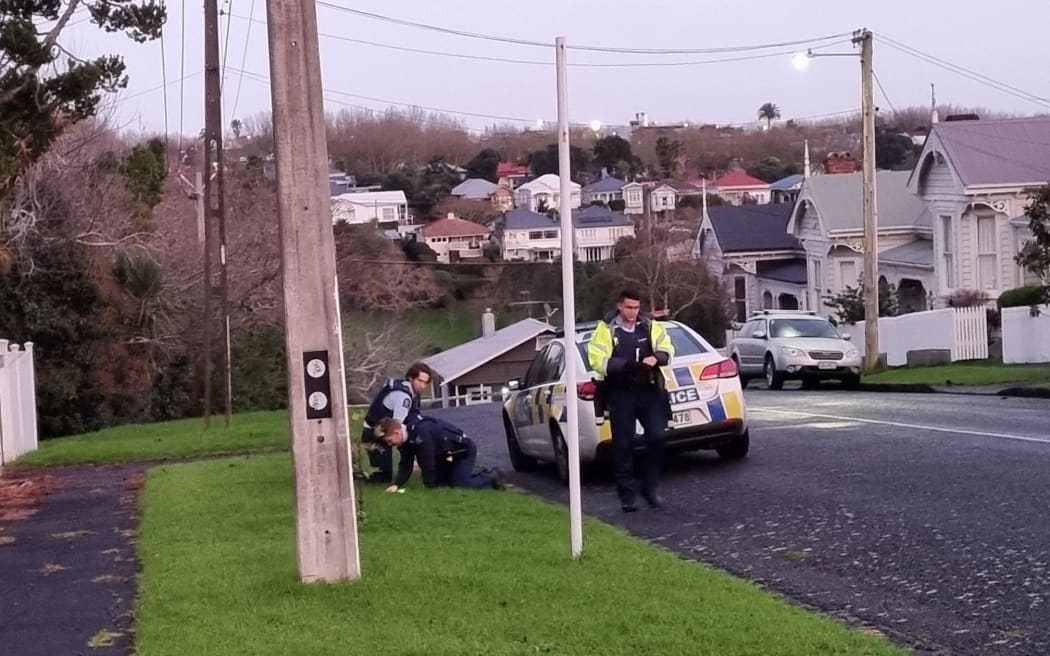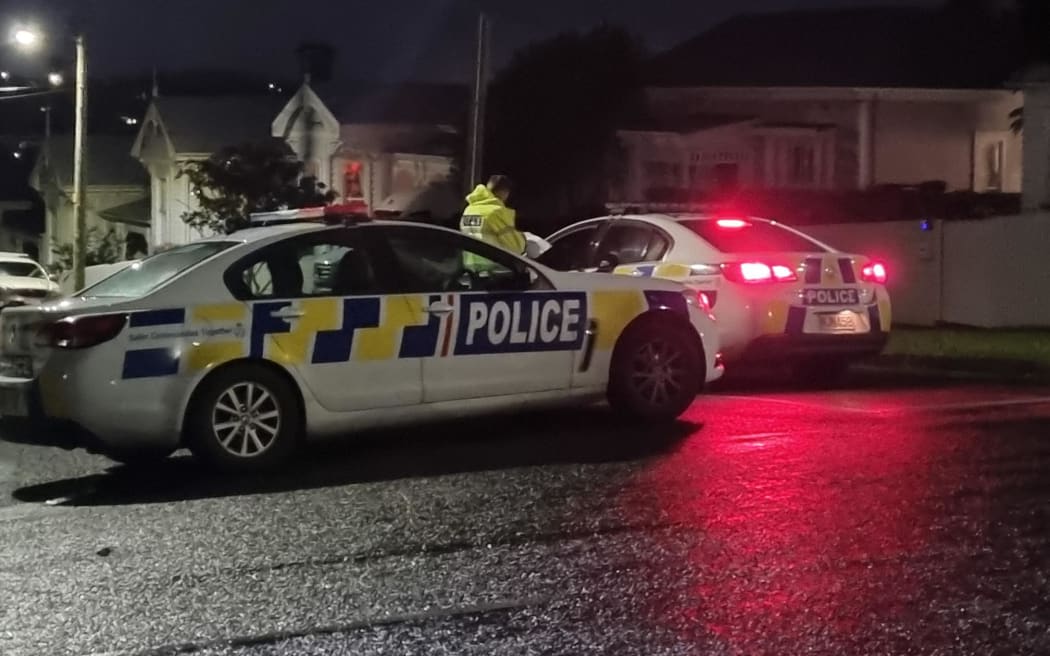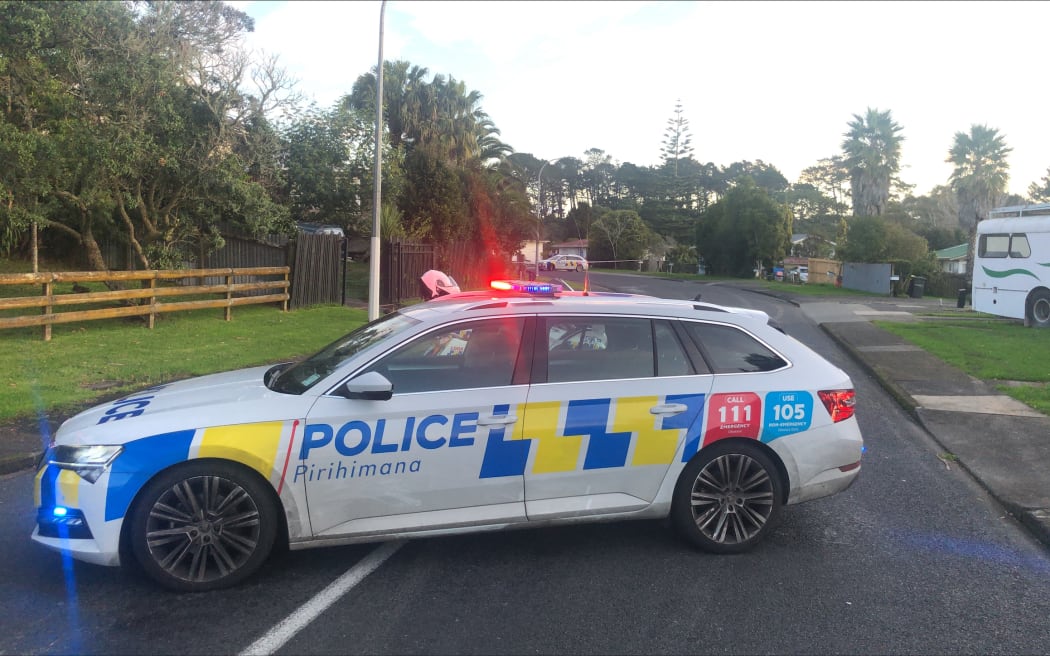By Ruth Hill of RNZ.co.nz and is republished with permission.
A security expert warns New Zealand authorities should pay heed to a warning by Australia’s top cop that hostile foreign governments are working with organised crime groups.

Cash, drugs and weapons seized during police searches. File photo. Photo: RNZ / Ana Tovey
New Zealand Customs says many traditional New Zealand gangs increasingly have global connections and it’s changed the way it works to stay ahead.
At a meeting of the Five Eyes Law Enforcement Group last month, its chair Australian Federal Police Commissioner Reece Kershaw made a startling claim that “the long shadow of organised crime and state aggression” is fuelling an increase in serious crimes.
Speaking to top figures from the New Zealand Police and crime-fighting agencies in Britain, the United States and Canada, Commissioner Reece Kershaw said transnational criminals were joining forces with unnamed hostile states to carry out espionage, fraud, child exploitation and other lucrative business.
Security analyst Dr Paul Buchanan from 36th Parallel Assessments said there was “a long-standing nexus” of organised crime and state actors, more recently in cyber-space.
“And the leaders of this are Russia and China but Israel does this, Iran does this. There are a number of countries that use the blackmarket operatives if you will, in order to achieve their mutual goals.”
Dr Buchanan, former intelligence and defense analyst and consultant to US government agencies, said the exponential increase in drugs, weapons and other illicit goods coming into New Zealand over the last decade was a completely foreseeable consequence of the Free Trade Agreement with China.
“It was the short-sightedness of trying to grab that FTA without having the law enforcement capability to interdict the vast shipments of drug precursor and weapons has led to the spate of gun violence we are seeing now,” Dr Buchanan said.
“These turf wars are about drugs.”
The number of drug interceptions of all types fluctuate from year to year but have trended up overall from a low of 452 in the first quarter of 2011 to regularly peaking at more than a 1000 in a three-month period from 2016 onward.
Between 2014 and September 2020, there were 5887 firearms, 11,265 firearms parts and 220,063 other weapons picked up at the border.
Meanwhile, Customs staff numbers remained relatively stable at about 1200 between 2008 and 2020, when they jumped to 1500 due to the new Maritime Border Order to manage the risk of Covid-19.
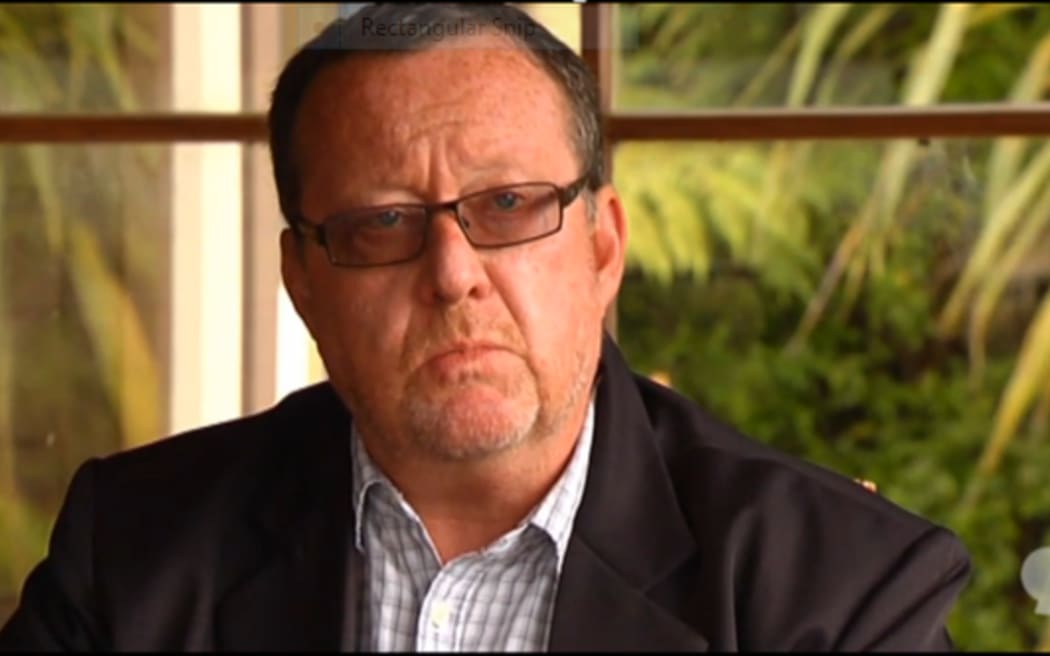
Security analyst Paul Buchanan of 36th Parallel Assessments. File photo Photo: SUPPLIED
Dr Buchanan said the lucrative drug trade had spawned some unlikely alliances.
For instance the Triads imported drugs, which were distributed by the traditional motorcycle gangs to the retail trade, which in the South Island was controlled by skin-heads who were white supremacists.
“So it’s a really nasty marriage of convenience between these actors and the goal is the same. The goal is to undermine from within the targeted society.”
However, the head of intelligence for Customs, Bruce Berry, said international best practice was to inspect between 2 and 5 percent of goods and New Zealand was “consistent with that”.
Customs had to walk a fine line between protecting the community and allowing legitimate trade, he said.
“As soon as we start clamping down on one particular risk pathway, it’s like squeezing a balloon – it pops out somewhere else. It pops out in another type of concealment or pathway.
“And so for us, it’s not the volume, obviously that presents challenges, but it’s not the volume that’s the biggest thing for us.
“It’s about using the right intelligence to put our resources in the right place.”
Berry admitted Customs’ success in catching foreign criminals in New Zealand actually accelerated the development of global crime networks.
“So we were arresting what we call ‘shore parties’, people sent to New Zealand to facilitate drug importations for example, and putting them in jail, right next to the people who were doing the distribution for them.”
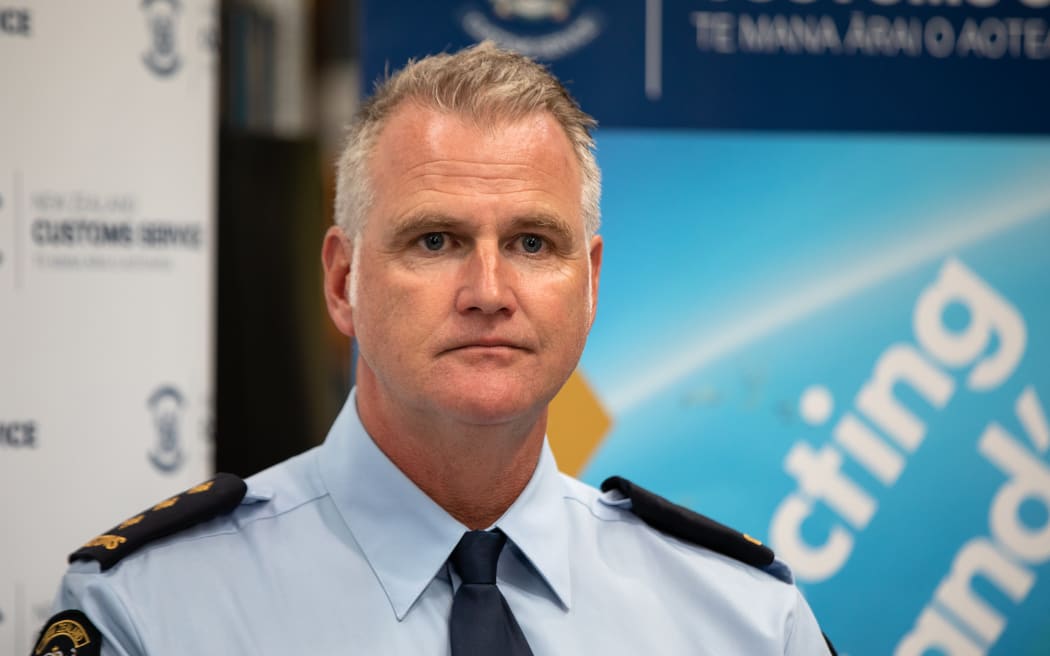
Customs head of intelligence Bruce Berry. File photo Photo: RNZ / Dan Cook
As a result, Customs’ focus was now on working with overseas agencies to cut off global supply chains, he said.
It was not just foreign criminals looking to do business in New Zealand, but local gangsters were also forming global syndicates.
“We’re seeing traditional motorcycle gang members relocating themselves globally and they’re not doing it for a holiday.
“We got them in Mexico, the States, Turkey, the Arab Emirates, we’ve got them in China, we’ve got them all over the world.”
Berry said the 501 deportees from Australia involved in gangs had had a huge influence, far in excess of their small numbers, approximately 1.5 percent of the adult gang population.
“Now we’d be naive to say that some of the trade craft they have brought to New Zealand wasn’t here already.
“But they have accelerated the pace, the connectivity and the violence.”
University of Canterbury sociologist Jarrod Gilbert, who has studied gang culture extensively, said the black-market worked like the legitimate economy: where there’s demand, supply will always meet it.
The National-led government’s bid in 2011 to stop local meth manufacture (by banning cold medicines containing pseudoephedrine) had backfired, he said.
“Organised criminals didn’t just say ‘oh well we’ll pack up shop’. They looked internationally. So inadvertently we hastened this shift of introducing local criminals to large internationally organised crime syndicates.
“So there’s an argument there that that was a massive own goal.”
Customs figures show the amount of methamphetamine, ephidedrine and pseudoephidrine intercepted at the border increased from less than 455,000 grams in 2012 to more than 1.6 million grams in 2019.
In the first three months of this year, more than 823,272 grams of meth alone had already been intercepted.
New Zealand Police declined an interview.
However, in a written statement a spokesperson said transnational organised crime and cybercrime were “persistent threats, which can cause widespread harm and compromise critical parts of the economy and public sector”.
Strengthening international partnerships was a priority under New Zealand’s Transnational Organised Crime Strategy, which targeted illicit drug crime, tax evasion, flora and fauna trafficking, illegal fishing and migrant exploitation, as well as cracking down on corruption, money laundering, computer crime and identity fraud, which made these crimes possible.





